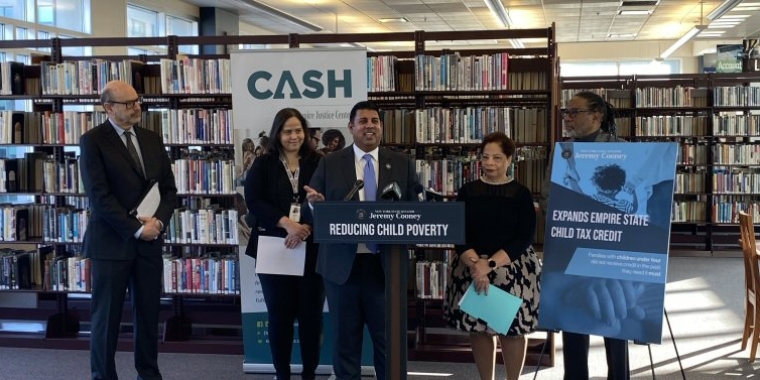Child advocacy groups in New York, led by the Schuyler Center for Analysis and Advocacy, are urging state leaders to take action against the alarming rates of child poverty. With cities like Syracuse, Rochester, and Buffalo ranking among the top 10 in the nation for child poverty rates, the need for intervention is dire.

The recent expiration of pandemic relief policies has exacerbated the situation, leading to an increase in poverty across the state. Advocates point to the success of the expanded Federal Child Tax Credit during the pandemic, which led to a significant drop in child poverty nationally.
Kate Breslin, President and CEO of the Schuyler Center, emphasized the impact of tax policy on low-income families, highlighting the effectiveness of the Federal Child Tax Credit in reducing poverty levels. To address the issue at the state level, advocates are calling for an increase in New York’s refundable tax credit for families with children.
Currently, the maximum state child tax credit stands at $330 per child per year. Advocacy groups propose raising this amount, with the Senate considering an increase to $550 per child per year. Additionally, they advocate for eliminating barriers that prevent the lowest-income families from accessing the full credit.
In addition to increasing the tax credit, advocates are pushing for other policy changes to combat child poverty. This includes funding the Housing Access Voucher Program (HAVP), reforming child care assistance eligibility criteria, and establishing a comprehensive personal medical leave program to support the workforce.
Breslin emphasized the importance of intentional measures to address child poverty, stating that it cannot be achieved without proactive policies. Without decisive action from state leaders, the cycle of poverty will persist, leaving vulnerable children and families behind.
As advocates continue to push for policy changes, the spotlight remains on New York’s leaders to prioritize the well-being of its children and families, particularly those facing economic hardship.